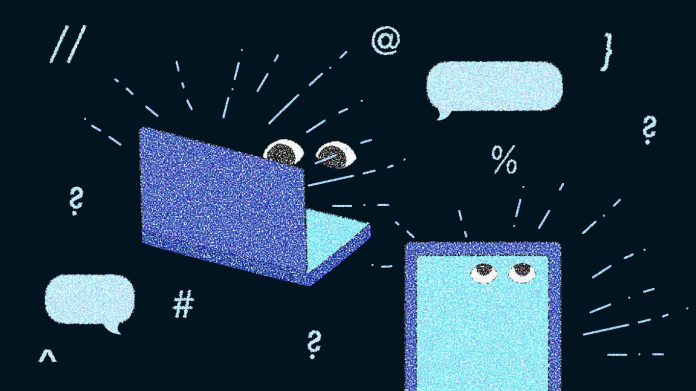April Zhang
Staff Writer
Turn on a device. Open a search engine. The moment you input any keyword, thousands upon thousands of results become instantly accessible to you. Within a matter of moments, you’re able to sift through immeasurable amounts of information on the topic — some helpful, some useless. You exit the page, turn off the device, perhaps charge it, and then you go on about your day. For many people, this cycle repeats multiple times a day — this is likely how you came across this article. In this seemingly complicated process that often takes a matter of seconds to conduct, have you ever stopped and wondered: am I receiving too much? Is this too much information? Or, on the contrary, have those in the past had too little information?
Professor Wolf D. Kittler at UC Santa Barbara (UCSB) explored this question in his inaugural lecture for the Interdisciplinary Humanities Center’s (IHC) series, Too Much Information? This series critically examines the way we access and consume information in the digital age, among other similar ethical debates.
Kittler began by describing the importance of writing when it came to communicating information throughout time. Historically, Plato and other scholars described writing as “a remedy for forgetfulness” and “a drug for remembering.” The highest and most anonymous form of memory, writing is the carrier of information over space and time, to people around the world, and even over the medium of death. Throughout time, writing has been organized in various ways, from references to another passage and table of contents to keywords and the use of various fonts. Kittler examined a number of ancient texts, filled with words that cannot be understood by the average English speaker. At this stage in history, the speaker explained, information was limited primarily to those with specific knowledge and understanding of that language and the subject matter. It was challenging to transcribe and circulate information which, at the time, was restricted to the passing of physical copies.
The late 18th century, however, witnessed a drastic change of events in information. As machines took over and technology developed at unprecedented speed, the definition of information revolutionized. Freight, passengers, and knowledge all used to be transferred in the same manner: mostly by foot. Then knowledge became widely distinguished from the bounds of freight and passengers in both its form and transmission. The discovery of electrolysis, for instance, allowed for the development of electric-telegraphy. After several failed attempts to measure the speed at which telegraphic messages were transferred, it was suggested that they must be traveling at the speed of thought, which can only be compared to the speed of light.
In the modern era, as a result of this revolution in information, it is widely known that enormous academic disciplines can no longer be grasped by a single individual. Each scholar must choose one particular area of academic interest, albeit only obtaining partial and incomplete knowledge of the others. We have moved away from becoming knowledgeable generalists, but have become specialists instead.
The creation and widespread application of search engines such as Google, while undoubtedly helpful, is also privy to our most secret desires and fantasies. As we spread emotions onto a digital diary, upload snippets of life on social media platforms, and share rants and thoughts with those closest to us or even with complete strangers we met in the digital world, we share with the internet information about ourselves. And the web, our dearest friend and our worst enemy, remembers everything. In short: it always comes prepared with receipts. In humans’ rage for order, according to Kittler, “We are spreading disorder all over the place.”
So, is there such a thing as too much information?
I left the talk pondering the same question that led me to the conference room in the first place. I feel and have always felt that the answer is yes. One audience member brought up an amazing point during the Q&A period after the talk. Technology, they explained, does not contain infinite knowledge but is, in fact, quite predictable in its own manners. Its “brainspace” is just so much larger than the capacity of a human brain that the amount of information it carries seems overwhelming to a human. Even so, a machine with an extensively larger capacity can still overload with too much information like a human brain — but a human’s can still be overloaded much more easily by comparison.
From the perspective of students: should this discourage us from learning? Pose this question to anyone walking on campus and the answer would be a clear no. There are still questions unanswered, answers incomplete, and ideas that have yet to be introduced to the world.
It is arguably even more important to think about the reverse implication. In this digital age of widespread information, consider the information the internet has about us: what we search for, who we communicate with, our most fragile secrets, and our deepest dreams. Consider to what extent our private life has truly remained private through our use of the internet and other various technologies. While we obtain information about the world and its wonders, others obtain information about us.
By learning about the history of information, its form, and its means of transmission, we only begin to understand how information and data impact our perspective on information, but also blur the lines between our personal and public lives.











